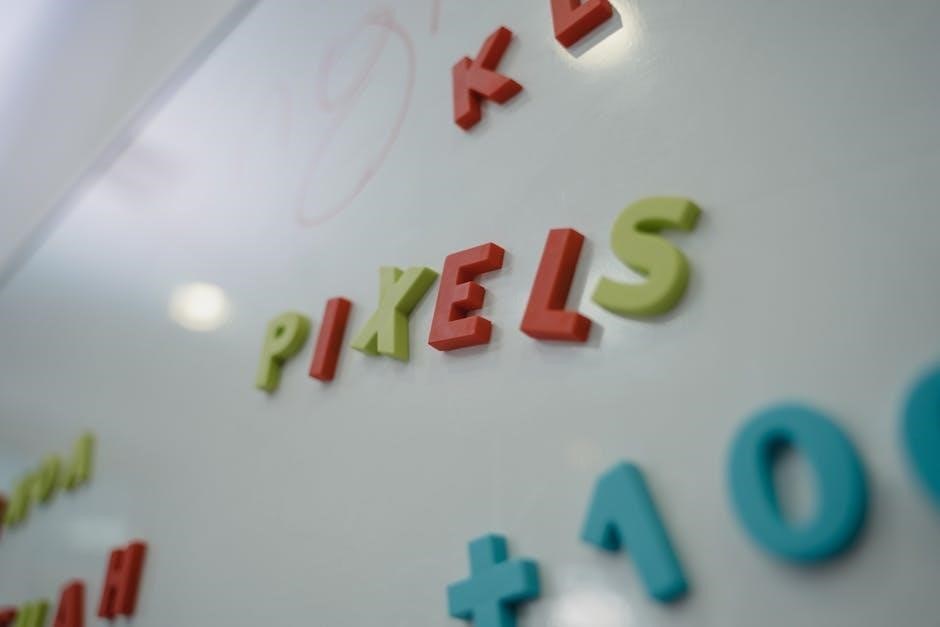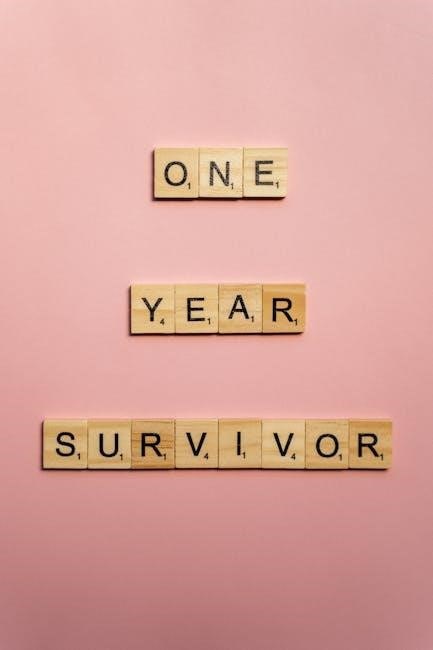
Overview of Year 2 Spelling Curriculum

The year 2 spelling curriculum is designed to build on the phonics skills learned in previous years, with a focus on learning to spell common exception words and applying spelling patterns to read and write new words. The curriculum is structured to provide a progressive and systematic approach to spelling, with opportunities for practice and reinforcement. Online resources, including pdf lists of words, are available to support teaching and learning. The curriculum also includes opportunities for pupils to apply their spelling skills in context, through writing and reading activities; By the end of year 2, pupils are expected to be able to spell a range of common exception words and apply spelling patterns to read and write new words with increasing accuracy. The curriculum is designed to be flexible and adaptable to meet the needs of all pupils.

Year 2 Spelling Word Lists
Year 2 spelling word lists are available online as pdf downloads, containing for students to practice and master, including common exception words and phonics patterns, every day.
Common Exception Words for Year 2
Common exception words for year 2 are a crucial part of the spelling curriculum, with lists available online as pdf downloads, including words such as even, ever, and every, which do not follow regular phonics patterns. These words are essential for year 2 students to learn and practice, as they are frequently used in everyday language. The common exception words for year 2 are grouped into units, making it easier for students to learn and revise them. Each unit focuses on a specific set of words, such as those ending in -le or -el, and provides opportunities for students to practice reading and spelling them. By mastering these common exception words, year 2 students will improve their overall spelling ability and become more confident writers. The pdf downloads available online provide a valuable resource for teachers and parents to support students in learning these important words.
Year 2 Spelling Patterns and Phonics
Year 2 spelling patterns and phonics are fundamental to the spelling curriculum, with a focus on learning different ways of representing sounds, such as the -le and -el endings. Students will learn to recognize and spell words with these patterns, including words like table and squirrel. The use of phonics to read and spell new words is a key skill for year 2 students, and they will continue to build on this skill throughout the year. By learning these spelling patterns and phonics, students will become more confident and accurate spellers, and will be able to tackle more complex words. The pdf downloads available online provide a range of resources and activities to support the teaching of year 2 spelling patterns and phonics, including word lists and worksheets. These resources can be used to support teaching and learning in the classroom.

Teaching Year 2 Spelling Words
Teaching year 2 spelling words involves using phonics and spelling patterns, with online resources and pdf lists available to support teachers and students, every day, effectively.
Using Phonics to Read and Spell New Words
Using phonics to read and spell new words is a crucial skill for year 2 students to master, with resources available online, including pdf lists of words to practice.
Phonics involves learning the relationship between sounds and letters, and using this knowledge to decode and spell words, with teachers providing support and guidance.
Online resources, such as pdf lists and interactive games, can help students practice and reinforce their phonics skills, and provide teachers with useful tools to support their teaching, every day, and help students learn and improve their spelling skills, effectively and efficiently, with fun and engaging activities, and become confident readers and spellers, in year 2, and beyond, with a strong foundation in phonics, and a love of learning, that will last a lifetime, and help them succeed, and achieve their goals, and become successful, and happy, and fulfilled, in all aspects of their lives, and reach their full potential, and make their dreams a reality, and never give up, and always keep trying, and learning, and growing, and developing, and becoming the best version of themselves, and making a positive impact, on the world, and making a difference, and leaving a lasting legacy, and being remembered, and cherished, and loved, and respected, and admired, and valued, and appreciated, and thanked, and rewarded, and recognized, and celebrated, and honored, and praised, and commended, and congratulated, and acknowledged, and noticed, and seen, and heard, and understood, and supported, and encouraged, and motivated, and inspired, and uplifted, and empowered, and enabled, and equipped, and prepared, and ready, and able, and capable, and confident, and competent, and skilled, and knowledgeable, and wise, and informed, and aware, and mindful, and thoughtful, and considerate, and kind, and compassionate, and empathetic, and caring, and generous, and giving, and sharing, and helping, and assisting, and supporting, and guiding, and mentoring, and coaching, and teaching, and training, and developing, and growing, and learning, and improving, and progressing, and advancing, and succeeding, and achieving, and accomplishing, and realizing, and fulfilling, and attaining, and gaining, and acquiring, and obtaining, and possessing, and having, and holding, and keeping, and retaining, and maintaining, and sustaining, and upholding, and defending, and protecting, and preserving, and conserving, and saving, and rescuing, and redeeming, and restoring, and revitalizing, and renewing, and rejuvenating, and refreshing, and revitalizing, and regenerating, and rebirthing, and reawakening, and rekindling, and relighting, and reenergizing, and reactivating, and reimplementing, and reinventing, and redefining, and rediscovering, and reexploring, and reexamining, and reinvestigating, and reevaluating, and reassessing, and reanalyzing, and reinterpreting, and reunderstanding, and reappreciating, and revaluing, and revering, and worshiping, and adoring, and loving, and cherishing, and treasuring, and prizing, and esteeming, and honoring, and respecting, and admiring, and valuing, and appreciating, and thanking, and rewarding, and recognizing, and celebrating, and commemorating, and observing, and noting, and marking, and recording, and documenting, and reporting, and announcing, and proclaiming, and declaring, and stating, and expressing, and conveying, and communicating, and sharing, and spreading, and disseminating, and distributing, and circulating, and broadcasting, and publicizing, and advertising, and promoting, and marketing, and selling, and trading, and exchanging, and bartering, and negotiating, and bargaining, and mediating, and arbitrating, and resolving, and settling, and closing, and finalizing, and completing, and finishing, and ending, and terminating, and concluding, and summarizing, and wrapping, and packaging, and presenting, and delivering, and serving, and providing, and offering, and supplying, and furnishing, and equipping, and preparing, and readying, and setting, and arranging, and organizing, and coordinating, and managing, and directing, and leading, and guiding, and mentoring, and coaching, and teaching, and training, and developing, and growing, and learning, and improving, and progressing, and advancing, and succeeding, and achieving, and accomplishing, and realizing, and fulfilling, and attaining, and gaining, and acquiring, and obtaining, and possessing, and having, and holding, and keeping, and retaining, and maintaining, and sustaining, and upholding, and defending, and protecting, and preserving, and conserving, and saving, and rescuing, and redeeming, and restoring, and revitalizing, and renewing, and rejuvenating, and refreshing, and revitalizing, and regenerating, and rebirthing, and reawakening, and rekindling, and relighting, and reenergizing, and reactivating, and reimplementing, and reinventing, and redefining, and rediscovering, and reexploring, and reexamining, and reinvestigating, and reevaluating, and reassessing, and reanalyzing, and reinterpreting, and reunderstanding, and reappreciating, and revaluing, and revering, and worshiping, and adoring, and loving, and cherishing, and treasuring, and prizing, and esteeming, and honoring, and respecting, and admiring, and valuing, and appreciating, and thanking, and rewarding, and recognizing, and celebrating, and commemorating, and observing, and noting, and marking, and recording, and documenting, and reporting, and announcing, and proclaiming, and declaring, and stating, and expressing, and conveying, and communicating, and sharing, and spreading, and disseminating, and distributing, and circulating, and broadcasting, and publicizing, and advertising, and promoting, and marketing, and selling, and trading, and exchanging, and bartering, and negotiating, and bargaining, and mediating, and arbitrating, and resolving, and settling, and closing, and finalizing, and completing, and finishing, and ending, and terminating, and concluding, and summarizing, and wrapping, and packaging, and presenting, and delivering, and serving, and providing, and offering, and supplying, and and and and and and and and and and and and and and and and and and and and and and and and and and and and and and and and and and and and and and and and and and and and and and and and and and and and and and and and and and and and and and and and and and and and and and and and and and and and and and and and and and and and and and and and and and and and and and and and and and and and and and and and and and and and and and and and and and and and and and and and and and and and and and and and and and and and and and and and and and and and and and and and and and and and and and and and and and and and and and and and and and and and and and and and and and and and and and and and and and and and and and and and and and and and and and and and and and and and and and and and and and and and and and and and and and and and and and and and and and and and and and and and and and and and and and and and and and and and and and and and and and and and and and and and and and and and and and and and and and and and and and and and and and and and and and and and and and and and and and and and and and and and and and and and and and and and and and and and and and and and and and and and and and and and and and and and and and and and and and and and and and and and and and and and and and and and and and and and and and and and and and and and and and and and and and and and and and and and and and and and and and and and and and and and and and and and and and and and and and and and and and and and and and and and and and and and and and and and and and and and and and and and and and and and and and and and and and and and and and and and and and and and and and and and and and and and and and and and and and and and and and and and and and and and and and and and and and and and and and and and and and and and and and and and and and and and and and and and and and and and and and and and and and and and and and and and and and and and and and and and and and and and and and and and and and and and and and and and and and and and and and and and and and and and and and and and and and and and and and and and and and and and and and and and and and and and and and and and and and and and and and and and and and and and and and and and and and and and and and and and and and and and and and and and and and and and and and and and and and and and and and and and and and and and and and and and and and and and and and and and and and and and and and and and and and and and and and and and and and and and and and and and and and and and and and and and and and and and and and and and and and and and and and and and
Representing Sounds in Different Ways
Representing sounds in different ways is a crucial aspect of year 2 spelling words, where students learn to recognize and spell words with various sound patterns. This includes learning about vowel sounds, consonant sounds, and digraphs. The internet provides numerous resources, including pdf lists and worksheets, to help students practice and master these sounds. By understanding how sounds can be represented in different ways, students can improve their spelling skills and become more confident readers and writers. Online resources, such as spelling games and interactive activities, can also help students to engage with this topic in a fun and interactive way, making learning more enjoyable and effective. With practice and reinforcement, students can develop a strong foundation in representing sounds in different ways, which is essential for their future academic success. This skill is fundamental to spelling and reading.

Assessing Year 2 Spelling Progress
Assessing progress involves evaluating student spelling skills, identifying areas for improvement, and tracking development, using online resources and pdf lists to support assessment and feedback, for year 2 students effectively.
Initial Assessment and Spelling Quizzes
Initial assessment of year 2 spelling skills involves evaluating students’ ability to spell words, using quizzes and online resources, including pdf lists of common exception words and spelling patterns.
Teachers use these assessments to identify areas where students need extra support, and to inform their teaching and planning, ensuring that students receive targeted help to improve their spelling skills.
The quizzes and assessments are designed to be engaging and interactive, using a variety of question types and formats, including multiple-choice questions, fill-in-the-blank exercises, and writing activities, to cater to different learning styles and abilities, and to make the assessment process enjoyable and motivating for year 2 students.
By using online resources and pdf lists, teachers can easily access and administer the quizzes, and track student progress over time, identifying areas of strength and weakness, and adjusting their teaching accordingly, to ensure that all students make progress and achieve their full potential in year 2 spelling.
Tracking Progress and Identifying Areas for Improvement
Tracking progress in year 2 spelling involves regularly monitoring students’ ability to spell words, using online resources and pdf lists to identify areas where students need extra support.
Teachers use a variety of methods to track progress, including quizzes, writing samples, and spelling tests, to assess students’ mastery of spelling patterns and common exception words.
By analyzing the data collected, teachers can identify areas where students are struggling, and provide targeted interventions to support their learning, such as additional practice, phonics instruction, or small group work, to help students overcome difficulties and make progress in year 2 spelling.
Regular tracking and assessment enable teachers to adjust their teaching and make informed decisions about future instruction, ensuring that all students receive the support they need to achieve their full potential in year 2 spelling, and make progress towards their learning goals.